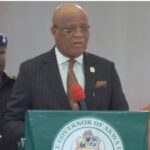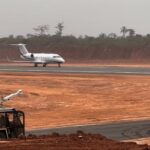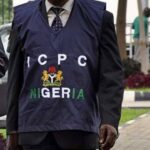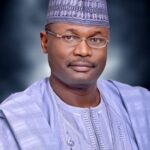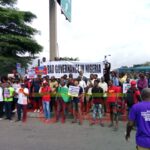President Bola Tinubu has urged the UN Security Council to give Nigeria and other African countries permanent seats at the council, as a way to strengthen its relevance and credibility.
President Tinubu who is the Chairman of the Authority of Heads of States and Government of the Economic Community of West African States, ECOWAS, stated this while addressing world leaders during the General Debate of the ongoing 79th Session of the United Nations General Assembly (UNGA) at the UN headquarters in New York, United States.
He said, “Some permanent members of the United Nations Security Council have offered encouraging, if tentative indications of support on the issue of reform of the Council. We welcome the change in tone and urge an acceleration in momentum to the process.

“The Security Council should be expanded, in the permanent and non-permanent member categories, to reflect the diversity and plurality of the world. We fully support the efforts of Secretary-General Guterres in this regard.
“Africa must be accorded the respect that it deserves in the Security Council. Our Continent deserves a place in the permanent members category of the Security Council, with the same rights and responsibilities as other Permanent Members.”
President Tinubu also called on world leaders to recommit themselves to multilateralism by deepening relations among member states of the United Nations (UN) in line with the principles of inclusivity, equality and cooperation.
This, he said, is the surest guarantee of global action against existential challenges faced by the international community.
President Tinubu, who was represented by his deputy, Vice President Kashim Shettima, at the high-level annual global event, decried the steep descent to singularity and nationalism which, according to him, are undermining the quest for peaceful and collective resolution of global challenges such as terrorism, climate change, poverty, food crises, hyper-inflation, nuclear proliferation and grinding debt burden, among others.
The Nigerian leader reminded the world leaders that the United Nations stands for multilateralism which represents inclusiveness, anchored on the tripod of peace, sustainable development and human rights.
He expressed worry about the main objectives of the UN and how it could sustain the global body’s relevance and resilience, noting that the pillars of the organisation are at risk of being broken against the principles of inclusivity, equality and cooperation which it stands for.
According to him, “Today, these pillars of our organisation are threatened. They risk being broken by the relentless pursuit of individual national priorities rather than the collective needs of the nations that are assembled here today.
“While commitment to multilateralism offers us the surest guarantee of global action to address the existential challenges we face, singularity and nationalism are undermining the aspirations towards the peaceful and collective resolution of such challenges.
“From last year’s summit, and indeed from previous years, we have carried over the numerous challenges of terrorism, armed conflict, inequality, poverty, racial discrimination, human rights abuses, food crises, hunger, irregular migration, piracy, global pandemics, hyper-inflation, nuclear proliferation, grinding debt burden, climate change, and a host of other vexations.


